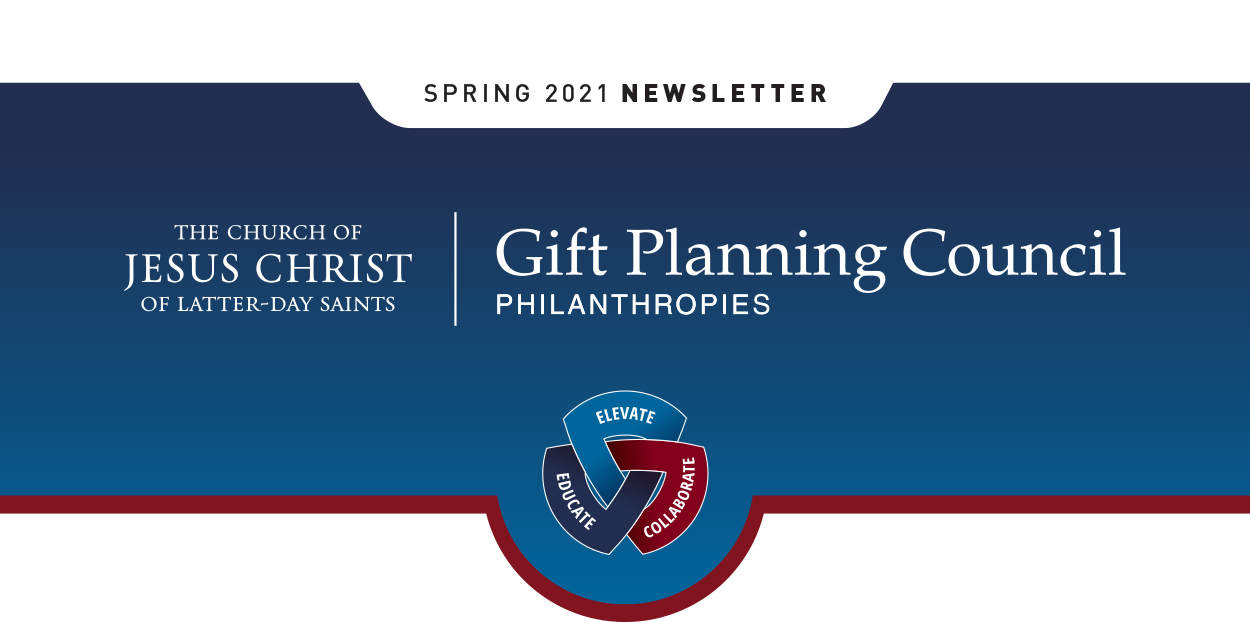
Spring 2021 GPC Newsletter
What Givers Get
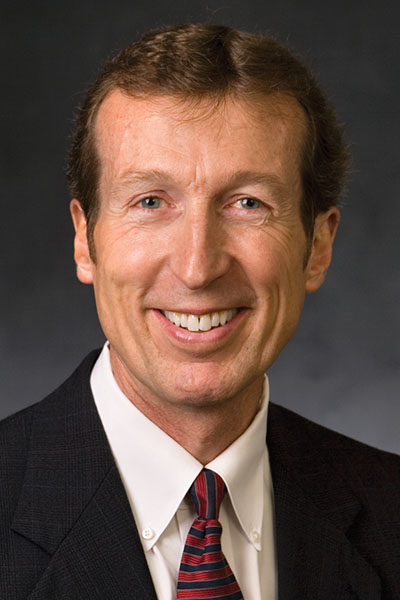
By Carl McLelland
On March 16, 2021, I began my 30th year as a gift planning officer with the Philanthropies Department of The Church of Jesus Christ of Latter-day Saints. In those years, I have come to recognize and appreciate the principle that those who make free-will giving a priority in their lives always gain much more than they give, and those gains often come in unanticipated ways.
There is a connection between abundance and gratitude beyond the obvious one. It relates to which comes first. People who are blessed with abundance often, but not always, feel gratitude. Those who are first filled with gratitude always attract prosperity and abundance, even if it is only in the view and perspective of that individual.
President David O. McKay often liked to quote William George Jordan, who said:
Happiness consists not of having, but of being; not of possessing, but of enjoying. It is the warm glow of a heart at peace with itself. A martyr at the stake may have happiness that a king on his throne might envy. Man is the creator of his own happiness; it is the aroma of a life lived in harmony with high ideals. For what a man has, he may be dependent on others; what he is, rests with him alone. That which he obtains in life is but acquisition; what he attains, is growth. [“The Royal Road to Happiness,” The Majesty of Calmness: Individual Problems and Possibilities (New York: Fleming H. Revell Company, 1900), 47; emphasis in original; see David O. McKay, Conference Report, October 1955, 8]
On a similar theme, Benjamin Franklin wrote, “Parsons, even in his prosperity, always fretting; Potts, in the midst of his poverty, ever laughing. It seems, then, that happiness in this life rather depends on internals than externals” (Letter to Hugh Roberts, London, September 16, 1758).
You, as professional advisors, and we, as charitable planning advisors, share the opportunity to help people not only build and preserve wealth but also recognize and experience the great blessings resulting from the wise stewardship of wealth and the joyful satisfaction that comes from giving back in meaningful ways. The paradigm expands from transactional to transformational. Grateful giving changes the giver, and in the process, material possessions are imbued with a new, higher meaning and purpose.
When Jesus said to the rich young man, “Go, sell everything you have and give to the poor, and you will have treasure in heaven” (see Matthew 19:21), it was not just because the poor need help. We can be certain it was also, and perhaps more importantly, because the young man needed to give and would be greatly blessed by doing so—not just in heaven but immediately. We all need in some measure to loosen our affections from the world.
Giving lessens the power of money over us and works to neutralize the negative influence of wealth. This principle is widely known and well documented but can be difficult to practice. The difficulties are usually greatest at the beginning of the giving journey. After people experience the joy of giving, they want to do more, and the giving-joy cycle continues until it becomes a new, happier way of life that brings peace of mind and heart as well.
One of many examples of this that we all remember is in the powerful story A Christmas Carol, when the dreams Ebenezer Scrooge experienced opened his heart and changed him in a way that brought great happiness and joy in giving. A poem I memorized once includes this line: “It’s giving and doing for somebody else—on that all life’s splendor depends” (Edgar Albert Guest, “The Making of Friends,” When Day Is Done [Chicago: Reilly and Lee, 1920], 150). Surely much of our joy and satisfaction in life comes as we serve and bless others.
Elder John A. Widtsoe of the Quorum of the Twelve Apostles spoke of the spiritual blessings that come when we pay tithing:
The tithe-payer establishes communion with the Lord. This is the happiest reward. Obedience to the law of tithing, as to any other law, brings a deep, inward joy, a satisfaction and understanding that can be won in no other way. Man becomes in a real sense a partner, albeit a humble one, with the Lord in the tremendous, eternal program laid out for human salvation. The principles of truth become clearer of comprehension; the living of them easier of accomplishment. A new nearness is established between man and his Maker. Prayer becomes easier. Doubt retreats; faith advances; certainty and courage buoy up the soul. The spiritual sense is sharpened; the eternal voice is heard more clearly. Man becomes more like his Father in Heaven. [Deseret News, 16 May 1936, Church Section, 5]
Similar blessings come to those wise stewards who with humbleness of heart and generosity of spirit give free-will offerings beyond tithing to accomplish the great work of the Lord in gathering the faithful and bringing needed help, education, and the message and blessings of salvation to all His children.
We may be doing our clients a disservice if our discussion of charitable giving is limited to capital gains, tax deductions, income recognition, and a cost-benefit analysis. As we come to better understand the happy path and destination of the giving journey, we need never be ashamed, embarrassed, or hesitant to invite someone to give, to embark on the path of generosity, and to experience that great internal change.
Harry Emerson Fosdick wrote:
Some Christians carry their religion on their backs. It is a packet of beliefs and practices which they must bear. At times it grows heavy and they would willingly lay it down, but that would mean a break with old traditions, so they shoulder it again. But real Christians do not carry their religion, their religion carries them. It is not weight; it is wings. It lifts them up, it sees them over hard places, it makes the universe seem friendly, life purposeful, hope real, sacrifice worth while. It sets them free from fear, futility, discouragement, and sin—the great enslavers of men’s souls. You can know a real Christian, when you see him, by his buoyancy. [Twelve Tests of Character (New York: George H. Doran Company, 1923], 87–88]
I have gained a new appreciation for the hand of God in my life and an expanded understanding of the purposes for which I have been entrusted with abundance. In that wonderful miracle of God’s economy, we always get more than we give. The windows of heaven open, and we realize again that there is enough and to spare, and as we share, joy of heart and peace of mind always increase.
Recently, while thinking about the effect of giving on the giver, I happened to come across the following account of the value of giving:
Once when I was a teenager, my father and I were standing in line to buy tickets for the circus. Finally, there was only one family between us and the ticket counter. This family made a big impression on me. There were eight children, all probably under the age of 12. You could tell they didn’t have a lot of money. Their clothes were not expensive, but they were clean. The children were well-behaved, all of them standing in line, two-by-two behind their parents, holding hands. They were excitedly jabbering about the clowns, elephants and other acts they would see that night. One could sense they had never been to the circus before. It promised to be a highlight of their young lives.
The father and mother were at the head of the pack standing proud as could be. The mother was holding her husband’s hand, looking up at him as if to say, “You’re my knight in shining armor.” He was smiling and basking in pride. . . .
The ticket lady asked the father how many tickets he wanted. He proudly responded, “Please let me buy eight children’s tickets and two adult tickets so I can take my family to the circus.”
The ticket lady quoted the price.
The man’s wife let go of his hand, her head dropped, the man’s lip began to quiver. The father leaned a little closer and asked, “How much did you say?”
The ticket lady again quoted the price.
The man didn’t have enough money.
How was he supposed to turn and tell his eight kids that he didn’t have enough money to take them to the circus?
Seeing what was going on, my dad put his hand into his pocket, pulled out a $20 bill and dropped it on the ground. (We were not wealthy in any sense of the word!) My father reached down, picked up the bill, tapped the man on the shoulder and said, “Excuse me, sir, this fell out of your pocket.”
The man knew what was going on. He wasn’t begging for a handout but certainly appreciated the help in a desperate, heartbreaking, embarrassing situation. He looked straight into my dad’s eyes, took my dad’s hand in both of his, squeezed tightly onto the $20 bill, and with his lip quivering and a tear streaming down his cheek, he replied, “Thank you, thank you, sir. This really means a lot to me and my family.”
My father and I went back to our car and drove home. We didn’t go to the circus that night, but we didn’t go without. [Dan Clark, “The Circus,” in Jack Canfield and Mark Victor Hansen, A Second Helping of Chicken Soup for the Soul: 101 More Stories to Open the Heart and Rekindle the Spirit (Deerfield Beach, Florida: Health Communications Inc., 1995), 3–4]
May we all find joy and fulfillment in our professional and personal service as we help bring the high adventure and blessings of giving into our own lives and the lives of others in intentional and inspired ways.
David Pratt Spotlight
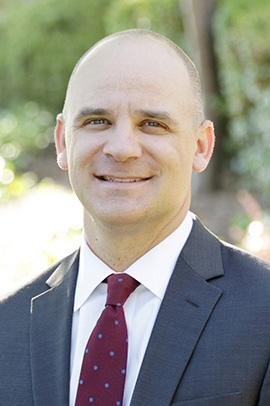
1. Please share a bit of your background and your practice.
My dad worked for the church so I grew up overseas, mostly in Latin America, and I gained a great appreciation for the work of the Lord in that part of the world. After graduating from BYU, my family and I moved to Sacramento and I started working in the financial services industry (and I’ve been enjoying it ever since). My team and I (there are six of us total) enjoy helping our clients with their financial planning needs, investments, and estate planning. Educating them on the benefits and methods of gifting has been very rewarding.
2. Why you are involved with the Gift Planning Council?
Attending church-sponsored schools was a wonderful experience for me. Ever since I graduated college, I wanted to give back to BYU and BYU-Idaho. Being involved in those efforts in my local area lead to being introduced to the Knight Society by some clients. That led to being introduced to the Gift Planning Council and attending many of the conferences that have been held over the years. I truly love finding ways to give back to the Church. I feel that it’s another way for me to help build the kingdom. (Read more)
GPS Team Member Spotlight: Shalayne Davis
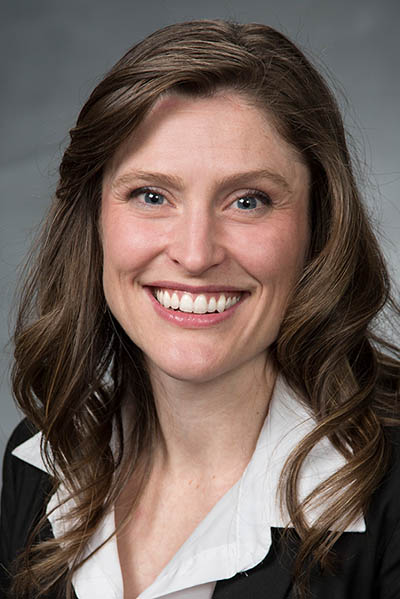
Shalayne Davis graduated from Brigham Young University with a BA in business management and a minor in German. She went on to earn her juris doctor from the University of Richmond and practiced law in Virginia before joining Philanthropies in 2017. She received the Certified Specialist in Planned Giving (CSPG) certificate from California State University, Long Beach, in 2019. She is a member of the Virginia State Bar, the Salt Lake Estate Planning Council, the Utah Planned Giving Roundtable, and the Utah Valley Estate Planning Council, on which she recently served as a board member. Shalayne served a mission in southern Germany and enjoys all things German, particularly Christmastime and the Weihnachtsmarkt. She is becoming acclimatized to the cold Utah weather by taking up winter sports like ice skating and snowboarding, though traveling and visiting historical sites are still her favorite pastimes.
Legislative Reactions to the Pandemic
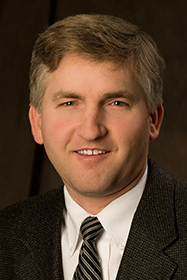
By Doug Flake
The 2020 pandemic provided an environment for the incubation and breakout of legislative changes in many areas, including significant tax changes.
Prior to the pandemic, the SECURE Act made changes to retirement planning, limiting most non-spouse heirs from stretching out IRA withdrawals. It also delayed the beginning age requirement for minimum distributions from IRAs and retirement plans from age 70 1/2 to age 72.
The CARES Act became law in March 2020 in the early days of pandemic lockdowns and has been followed by several additional legislative responses to the pandemic. CARES provided for the first of, to date, two rounds of individual recovery rebate credits for those with incomes below certain levels. The act relaxed limits on certain retirement plan distributions and loans. It waived required minimum distributions for the year 2020 and relaxed limits on charitable contributions, with a $300 available contribution deduction for non-itemizers, and temporarily removed the 50 percent of adjusted gross income limit on contribution deductions. It encouraged employment by allowing credits for employee retention and deferral of payroll taxes in some cases.
The CARES Act also allowed for temporary herd immunity from some of the loss-limiting provisions that Congress had put in place a few years earlier. The act relaxed limits on the use of net operating losses, allowing losses incurred in 2018, 2019, and 2020 to be carried back for five years if elected and to offset 100 percent, rather than just 80 percent, of income in a carryback or carryover year. Interest expense deduction limitations were also relaxed temporarily, and a technical correction was made to allow certain improvements made to real estate eligible for 100 percent bonus depreciation.
The CARES Act created the Paycheck Protection Program, made PPP into a recognizable acronym, and allowed for loans made under the program to be forgiven depending on the use of loan proceeds. It took a separate act at the year’s end for Congress to clarify that it really meant loan forgiveness is tax free like it said the first time and that business expenses are deductible as normal. However, contrary to US federal taxation, Utah has determined that it will tax PPP loan forgiveness amounts in the year in which forgiveness is approved.
President Biden has given hints as to potential tax changes he will propose. He has discussed increasing the top income tax bracket from 37 percent back to 39.6 percent (where it was a few years ago) and has proposed that the rate on long-term capital gains over $1 million per year be increased from 20 percent to 39.6 percent. Also proposed are increases in payroll taxes by applying the 12.4 percent FICA payroll tax to earnings over $400,000, an increase in the C Corp tax rate from 21 percent to 28 percent, and a phaseout of the qualified business income deduction on incomes over $400,000.
Join the Gift Planning Council LinkedIn group at this link.
Contact Us
For a detailed discussion of the services we provide you and your advisors, please contact us at 1-877-650-5377 or by email.